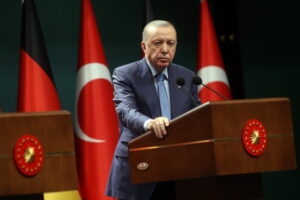The selection of Marco Rubio for US Secretary of State is sending clear messages about the direction of US foreign policy, particularly in relation to China. Rubio, alongside Mac Walters, a known figure in the Republican Party, is seen as a “hawk” when it comes to China, and their appointments are a reassuring message to allies, as their appointments to these top positions are conventional choices that will ensure smooth communication with allies.
Trump selecting Marco Rubio as the Secretary of State isn’t a very bright news for Ankara:
— Ragıp Soylu (@ragipsoylu) November 12, 2024
• He maintains regular contacts with Gulenists, including Enes Kanter
• Severely opposed 2019 Turkish incursion in Syria and Trump’s withdrawal decision
• Critical of Maduro -… pic.twitter.com/WSIvb30Y2f
One country that should be concerned is Turkey, and specifically President Recep Tayyip Erdoğan. Walters, a veteran of the Afghanistan conflict, has consistently supported the Kurds in northern Syria. If this becomes official policy, it could lead to significant tension with Turkey, which hopes to gain approval for operations against the Kurds, whom they consider allies of the PKK (Kurdistan Workers’ Party). Walters has also been highly critical of Turkey’s relationship with Hamas.
News of Marco Rubio’s possible appointment as Secretary of State was a shock to Ankara. Rubio, a politician with a strong personality, has had longstanding relationships with Gülenists and supported basketball player Enes Kanter in his dispute with Erdoğan. In 2019, Rubio opposed Turkey’s invasion of Syria and the withdrawal of US forces from Kurdish regions. He has heavily criticized Erdoğan’s relationship with Venezuelan President Nicolás Maduro and frequently states that he considers Turkey to be an authoritarian state, comparing it to Russia, China, and Iran.
Additionally, Rubio has a particular interest in and understanding of the Eastern Mediterranean. He was the Republican who, together with Democratic Senator Bob Menendez, co-signed the EAST MED Act in 2019, a bipartisan initiative that underpins US policy in the region, where Greece and Cyprus play a central role as pillars of stability ensuring continued American presence.
Ask me anything
Explore related questions





